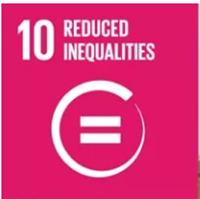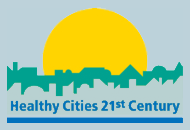Reducing Inequalities: Getting Results Flagship Training Programme
This programme aims to strengthen capacity in organizations to understand and reduce inequalities. The programme has been designed to develop a network of professionals with capacity to support effective collaboration across organizations from the public, community and voluntary sector. It provides a platform to explore recent developments in the field of inequalities, including evidence and information required to define the issues and tools and approaches available to support action.
The Reducing Inequalities: Getting Results programme has been facilitated annually for the last 3 years.
In 2017 the training took place in Belfast with 24 participants from a range of statutory, voluntary and community organisations. Comprising of 4 modules, the programme provided a platform to explore the most recent developments, and enable participants to reflect on their specific role and the capacity and knowledge of their organisation to influence the magnitude of ‘striking’ inequalities. Futher details are available here.
In 2018 the programme, this time taking in place in Antrim, had 25 participants from a range of organisations. Comprising again of the 4 modules, took participants from the identification and definition of inequality through to the types of successful interventions from across the World Health Organization (WHO) European Healthy Cities Network which can be transferred locally. More details here.
The training moved to Derry and Strabane in 2019 in partnership with Developing Healthy Communities. The 4 modules were delivered to 16 particpants from the Derry and Strabane area and beyond. More details can be found here.
Reducing Inequalities: Getting Results - 1 day training
One-day training sessions with key learning from Reducing Inequalities: Getting Results are also available for delivery on request. Please contact Anne McCusker: anne@belfasthealthycities.com for further details.
Health Equity Tool: The effects of policy and other types of proposal on inequalities
A one-page tool was developed with representatives from different organizations to help explore the potential effects of policy and proposals on inequalities in local communities. The tool can be used to screen policies, strategies, plans and commissioning frameworks against the potential effects of the inequalities. The tool can be used during the development or review of a policy or other types of proposal.
Reducing Inequalities: Getting Results Seminar
Belfast Healthy Cities hosted a seminar in January 2017 focusing on promising and successful approaches to tackling inequalities. Speakers demonstrated innovative approaches to resolving complex problems, highlighting specific developments and discussing the results of collaborative cross-sectoral working. See further details here.
Care Zone
The Care Zone was established as a community development pilot resulting from a Future Search workshop titled ‘Building Hope: Working Together to Prevent Suicide’. The purpose of this workshop was to bring together representatives from various statutory and third sector organisations to bolster suicide prevention strategies within Belfast. The CareZone project is based upon a community development model that seeks to support local residents to overcome health inequalities, with the longer term aim of reducing suicide. This approach favours cohesive ways of working between partners including the active involvement of local residents and local community groups in order to empower them and to build capacity to support them to take action to increase ‘hope’ and care in the area. Community input was sought in order to help CareZone partners identify the needs of local communities and to begin to develop and negotiate partnerships and resources to meet these needs. The lessons learned from the application of the CareZone model are intended to be carried forward to other areas in Belfast.
Belfast Healthy Cities supported the CareZone pilot by producing a compressive health profile of the area that highlights the key health inequalities between local residents and the wider Belfast and Northern Ireland populations. We also assisted in the drawing up of the final report that sets out the key findings and action plan.
Evidence
 Health inequalities are defined as such differences in health, which are avoidable and therefore can be considered unjust. Striving for equity is not about ensuring that everyone has the same level of health, but about providing fair conditions that allow everyone to attain their full potential.
Health inequalities are defined as such differences in health, which are avoidable and therefore can be considered unjust. Striving for equity is not about ensuring that everyone has the same level of health, but about providing fair conditions that allow everyone to attain their full potential.
Income and social status are key determinants of equity, or inequality. The level of income has a decisive influence on material living conditions. Social status affects both self-esteem and mental well-being, and ability to alter those conditions. People on low incomes and in lower social groups are more likely to die young and suffer ill health, primarily because their physical and social living conditions are poorer.
Poor social and economic circumstances affect health throughout life.
Health inequalities are a global concern and countries across the world are working to reduce the impact of inequalities. Addressing social inequalities contributes significantly to improving health and well-being.
The United Nations Sustainable Development Goals have been developed to transform our world by 2030. Countries are working together to implement the plan which has identified reduced inequalities as one of 17 goals.
It is well documented that improving the health and well-being of the population cannot be tackled by the health sector alone; all sectors have a positive role to play in reducing inequalities in health. Our health sector provides important health care, but a strong social, economic and built environment can help prevent and reduce ill health thus reducing demands on the system as well as pressure on public budgets.


